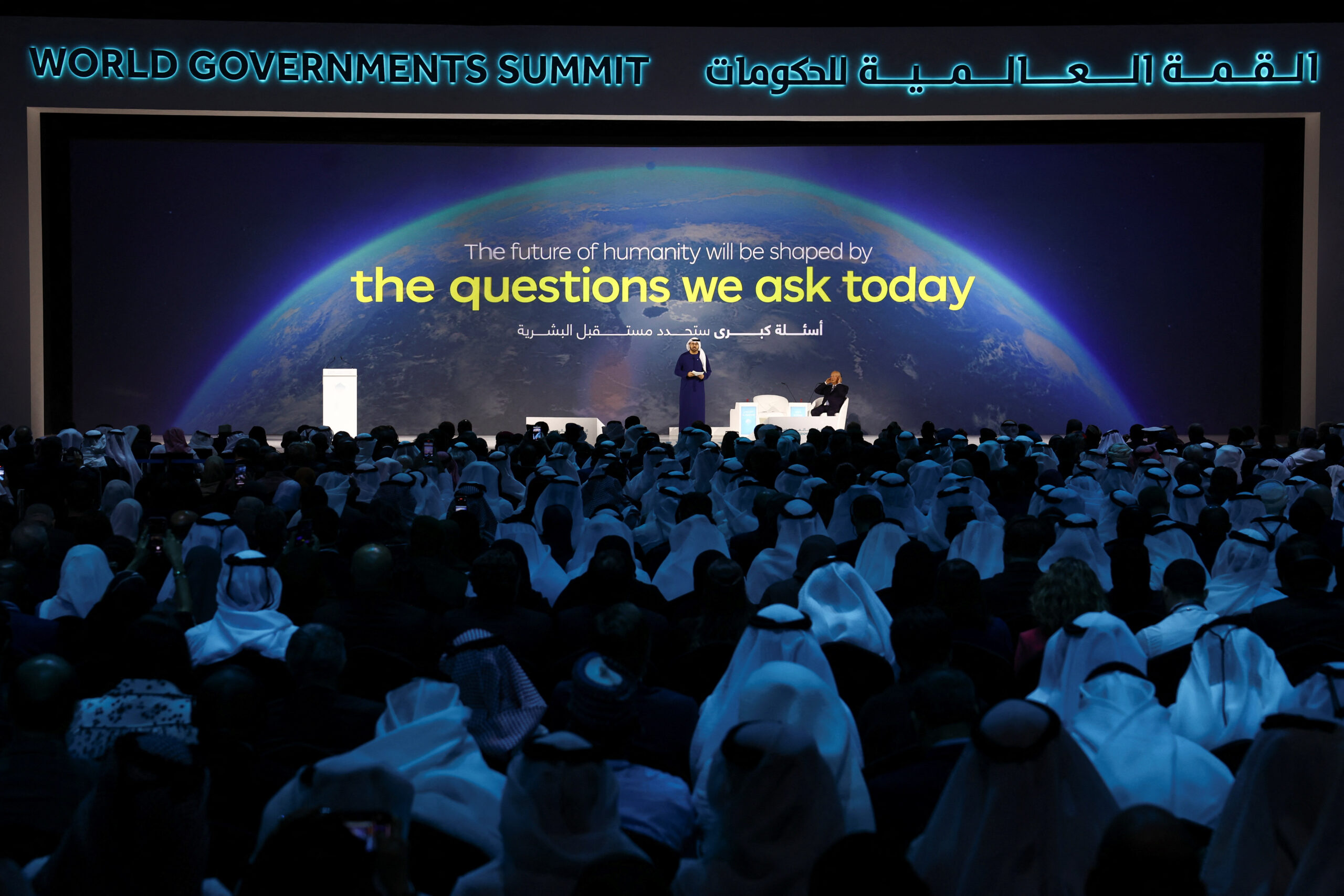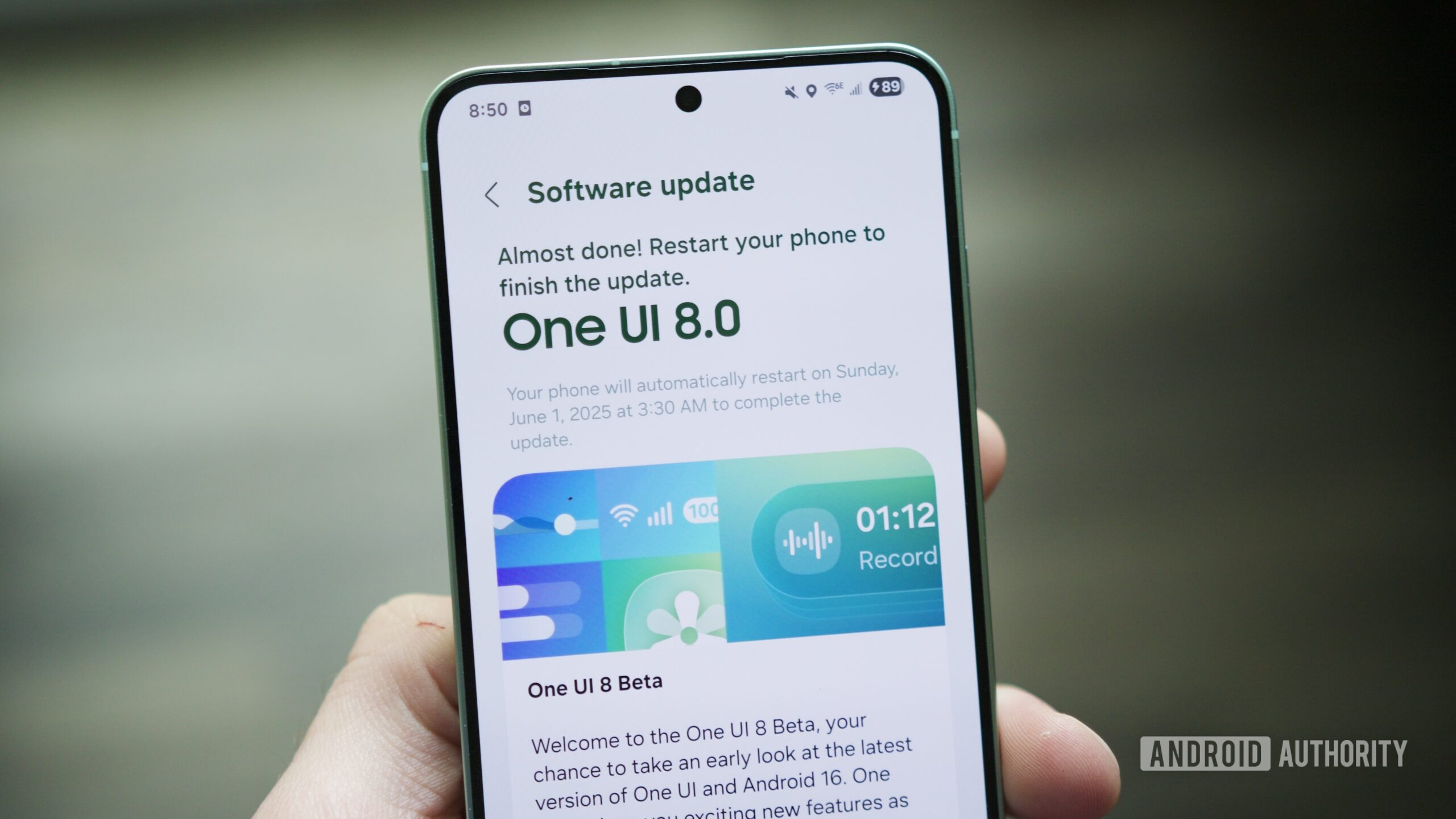February 12, 2025
Dispatch from Dubai: Trump is seeking to upend the global chessboard
DUBAI—A traditional view of geopolitics frames it as a multidimensional chessboard, designed for grand masters and great powers, in a competition that plays out over generations.
On the sidelines of the World Governments Summit (WGS) here, a senior Middle Eastern official smiles and says that US President Donald Trump seems determined to upend that board early in his second term, then rearrange the pieces for an accelerated competition with rules of his own making.
Between the optimists and the pessimists
For those here who view this shift optimistically, Trump is a leader whose nonideological, transactional pragmatism could result in “great-power deconfliction” at a moment when it is most needed. Trump can, the thinking goes, negotiate better arrangements with Iran, China, and Russia that could defuse interlocking dangers across three regions that have made 2025 one of the most perilous years of our lifetimes.
For the pessimists, Trump’s failure to consider the second-order impacts from his flurry of early actions and pronouncements is perilous stuff. He’s undervaluing alliances and important partnerships, they say, through ill-considered tariffs and proposals aimed at emptying Gaza, which could send large numbers of Palestinian refugees into neighboring countries. That could produce instability in the region, prompt some friends to hedge their bets, and encourage adversaries to seek advantage.
WGS, an annual event that this year includes some four thousand participants from 150 countries, is a good place to sound out the response to the early days of the Trump administration and its potential geopolitical consequences. (I came to Dubai as part of the ’s knowledge partnership with WGS, where the Council is hosting the Geotechnology and Policy Forum, focused this year on commercial space issues.)
For the optimists, Trump’s determination to end Russian President Vladimir Putin’s war in Ukraine, a “killing field,” as the US president vividly described it at the World Economic Forum in Davos, could help stabilize Europe. If he achieved an end to the war properly, Trump could secure Ukrainian sovereignty and its Western integration, though at the cost of some territory.
His willingness to engage with China to find a better trade and economic outcome is particularly popular in this region, where Saudi Arabia and the United Arab Emirates (UAE) are among China’s top energy suppliers. Middle Eastern officials see as olive branches Trump’s relatively modest 10 percent tariffs on China, instead of the threatened 60 percent, his invitation to Chinese President Xi Jinping to attend his inauguration, and his executive order pausing the TikTok ban.
The officials I have spoken with here see an additional positive signal regarding China from the influence wielded by billionaire businessman Elon Musk, who will be speaking here by video link on Thursday. Musk has deep investments in the country and ties to Chinese leadership.
On Iran, a country that for the first time this month sent four navy vessels to the UAE for a meeting with Emirati naval vessels, officials here note that Trump has said that he would prefer a deal with Iran to “bombing the hell out of it.” Though no officials here would say this on the record, they much prefer the tougher Trump approach to Iran over what they’ve seen in Democratic administrations, but sans military escalation.
Great expectations for AI
The problem here comes with a growing perception that countries in the region, including Saudi Arabia and the UAE, can’t rely on a consistent US commitment. The consensus view is that US focus on the region has been in relative decline since the Obama administration, except for a surge of military and political support for Israel after the October 7, 2023, Hamas terror attacks.
At the same time, the desire for US consistency and commitment grows in rough proportion to each additional investment from the two countries. Saudi Arabia and the UAE have invested tens of billions of dollars—soon to be hundreds of billions of dollars—in US companies, and artificial intelligence (AI) ventures in particular.
The UAE has made clear its intention to be a global AI investment and development leader. Just this week, Bloomberg reported that MGX, the UAE’s tech investment vehicle that has already invested in OpenAI and xAI, is in talks to invest in San Francisco–based Anthropic, which developed the popular chatbot named Claude. What once was regional dependence on US security guarantees has now become a big bet on AI, at the expense of building deeper relationships with China.
A tale of two Trump experiences
The Middle East has seen Trump both let it down and exceed expectations. On the disappointment front, officials harken back to when the Trump administration failed to respond in September 2019 after Iranian-made drones attacked oil-processing facilities in Abqaiq and Khurais in eastern Saudi Arabia.
Yet just a few months later, in January 2020, Trump ordered an audacious drone strike that killed Qasem Soleimani, an Iranian commander who was thought to be the second most powerful individual in the country. When it announced his death, the Pentagon said that Soleimani was responsible for the deaths of hundreds of US and coalition soldiers.
Middle Eastern officials took away from those two experiences that the Trump administration would act decisively to defend what it interpreted as its own interests—but not to respond to an attack on its ally’s oil facilities.
Two years later, in January 2022, US-UAE relations hit a new low, Middle Eastern officials say, when US President Joe Biden at first failed either to call UAE leaders or to offer assistance following an attack on Abu Dhabi by the Houthi movement, an Iranian terrorist proxy group, using missiles and drones that killed three people and injured six others.
What gave the region the most confidence in the Trump administration was its successful efforts, alongside the Emiratis, to bring about the Abraham Accords, which began in September 2020 as bilateral normalization agreements between the UAE and Israel, and Bahrain and Israel.
Officials here describe their experience in concluding these agreements, which were brokered by the Trump administration, as mercifully free of the cumbersome bureaucracy they generally experience in dealing with Washington.
While officials I spoke with here understand how a degree of unpredictability can serve Trump in his relationship with adversaries, they are looking for more steadiness of purpose in security and economic relations. When it comes to AI, the question is just how far the United States will go in providing the Emiratis its most advanced technologies and GPUs, the graphics processing units crucial to AI advancement.
There is a sense here in Dubai that the new rules of the game—Trump’s rules—are clearer in his second term than they were in the first. The optimists here are quickly stepping up to invest in that expectation. The pessimists, however, linger in the background, asking their more optimistic friends whether it’s prudent to bet their future on the hope that Trump’s “America first” policies will also prioritize their interests and not just those of the United States.
The optimists like to quote Trump from his first Davos speech in 2018, when he said, “‘America first’ does not mean America alone.” Seven years later, they are wagering hundreds of billions of dollars that he means it.
Frederick Kempe is president and chief executive officer of the . You can follow him on X: @FredKempe.
This edition is part of Frederick Kempe’s Inflection Points newsletter, a column of dispatches from a world in transition. To receive this newsletter throughout the week, sign up here.
Image: Minister of Cabinet Affairs of the United Arab Emirates and Chairman of the World Governments Summit, Mohammad Al Gergawi speaks at a session at the World Governments Summit, under the theme ‘Shaping Future Governments’, in Dubai, United Arab Emirates, February 11, 2025. REUTERS/Amr Alfiky









